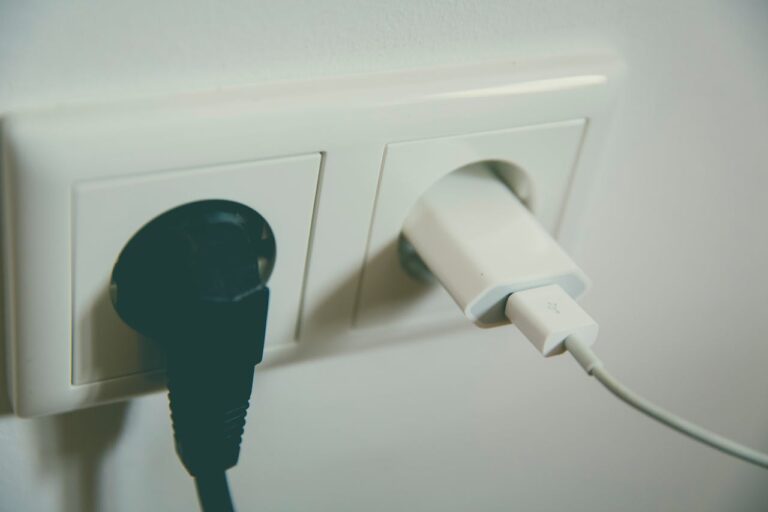
Save on Bills and Stay Safe by Unplugging Unused Appliances
Are you aware that leaving appliances plugged in, even when they are not in use, can lead to higher energy bills and potential safety hazards? For homeowners, energy savers, and safety-conscious individuals, understanding the importance of unplugging unused appliances is crucial. This blog post aims to shed light on the hidden dangers and costs associated with leaving appliances plugged in and provide practical tips for integrating unplugging into your daily routine. By the end of this post, you will have a deeper understanding of phantom power, know which appliances are the biggest culprits, and learn how to save money while keeping your home safe.
The Hidden Risks of Phantom Power
Phantom power, also known as standby power, refers to the energy consumed by electronic devices even when they are turned off or in standby mode. This energy consumption might seem negligible, but it can add up over time.
Understanding Phantom Power
Phantom power occurs because many devices continue to draw electricity to maintain features such as clock displays, remote control functions, and internal memory settings. For instance, your television, computer, and microwave are likely drawing power even when they are not in active use.
Financial Impact
The financial impact of phantom power can be significant. Studies estimate that phantom power accounts for about 5-10% of total household energy consumption, which translates to several hundred dollars annually. Reducing this wasted energy by unplugging can lead to noticeable savings on your electricity bill.
Environmental Consequences
Beyond the financial aspect, phantom power has environmental implications. The unnecessary energy consumption contributes to greenhouse gas emissions and strains natural resources. By unplugging unused appliances, you can reduce your carbon footprint and contribute to a more sustainable planet.
Identifying Appliances that Use Phantom Power
Not all appliances draw the same amount of phantom power. Here’s a list of common household items that are the biggest contributors to standby energy usage.
Entertainment Devices
Televisions, cable boxes, gaming consoles, and DVD players are some of the top culprits. These devices often remain in a standby mode, ready to power on instantly, which requires a continuous flow of electricity.
Office Equipment
Computers, printers, and fax machines also consume phantom power. Even when turned off, these devices may still draw power to support features like instant-on capabilities and network connectivity.
Kitchen Appliances
Microwaves, coffee makers, and electric ovens often have clocks and other features that require constant power. Additionally, smaller kitchen gadgets like toasters and blenders can contribute to standby energy usage if left plugged in.
The Benefits of Unplugging
Unplugging unused appliances offers several advantages, both financially and environmentally. Here’s a closer look at the benefits:
Financial Savings
By eliminating phantom power, you can lower your electricity bills. Unplugging appliances when they are not in use can save you hundreds of dollars annually. This simple habit can make a noticeable difference in your monthly budget.
Environmental Benefits
Reducing your energy consumption helps decrease greenhouse gas emissions and conserves natural resources. Unplugging appliances contributes to a more sustainable lifestyle, which is beneficial for the environment and future generations.
Increased Safety
Unplugging appliances can also reduce the risk of electrical fires. Faulty wiring or damaged devices left plugged in can pose a fire hazard, especially when no one is around to monitor them. Taking the time to unplug can enhance the safety of your home.
Tips for Unplugging Safely and Efficiently
Integrating the habit of unplugging appliances into your daily routine doesn’t have to be inconvenient. Here are some practical tips to help you get started:
Use Power Strips
Plug multiple devices into a power strip with an on/off switch. This way, you can easily cut power to several appliances at once without having to unplug each one individually. Power strips are especially useful for entertainment centers and home offices.
Set Reminders
Create reminders to unplug devices before leaving the house or going to bed. Sticky notes on the fridge or setting alarms on your phone can serve as helpful prompts. Eventually, this practice will become second nature.
Smart Plugs and Timers
Invest in smart plugs or timers that automatically turn off appliances at designated times. These devices can be controlled via smartphone apps, offering a convenient way to manage energy consumption even when you’re not home.
The Future of Energy Efficiency
As technology advances, new solutions are emerging to further reduce energy consumption and enhance efficiency. Here’s a glimpse into the future of energy-efficient practices:
Smart Home Technology
Smart home systems allow for centralized control of all connected devices. These systems can automatically power down appliances when not in use, monitor energy usage, and provide insights to help homeowners make informed decisions about their energy consumption.
Energy-Efficient Appliances
The market for energy-efficient appliances is growing. Newer models are designed to consume less power without sacrificing performance. When purchasing new appliances, look for Energy Star ratings and other certifications that indicate higher efficiency.
Renewable Energy Integration
Integrating renewable energy sources, such as solar panels, into your home can further reduce reliance on traditional power grids. Coupled with energy-efficient practices like unplugging unused appliances, renewable energy can significantly lower your environmental impact.
Conclusion
Unplugging unused appliances is a simple yet effective way to reduce energy consumption, save money, and enhance the safety of your home. By understanding the hidden risks of phantom power, identifying the biggest culprits, and adopting practical unplugging habits, you can make a positive impact on both your wallet and the environment.
Taking action today will pave the way for a more sustainable and energy-efficient future. For those looking to further optimize their energy usage and safety, consider booking a consultation with one of our experts. Together, we can create a comprehensive plan to power down for safety and savings.